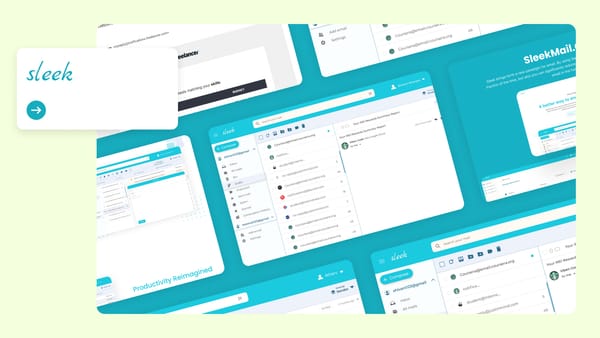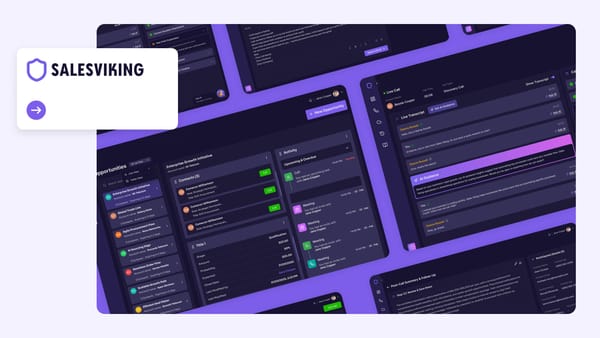The Ultimate Guide to Artificial Intelligence in Recruiting

The staffing industry is undergoing a significant transformation driven by the integration of artificial intelligence in recruiting, particularly Generative AI (GenAI). This technology is reshaping recruitment and talent management processes, offering enhanced efficiency, personalization, and data-driven insights crucial in today’s competitive job market.
By automating repetitive tasks such as resume screening and candidate sourcing, GenAI allows recruiters to focus on strategic activities, thereby improving overall productivity. This technology not only accelerates the recruitment process but also enhances the quality of hires by ensuring that only the most qualified candidates are shortlisted.
This article delves into the role of GenAI in staffing and various case studies illustrating its application, highlighting its impact on talent acquisition, recruitment strategies, and workforce management.
The Role of GenAI in Staffing
GenAI, a powerful subset of artificial intelligence in recruiting, focuses on creating outputs across modalities like text, images, audio, and video—traditionally tasks requiring human expertise.
In the staffing industry, GenAI is utilized for tasks such as resume screening, candidate matching, job description generation, and personalized communication with candidates. These applications streamline recruitment processes and enhance the overall candidate experience.

Enhancing Recruitment Efficiency
Generative AI has transformed recruitment processes by improving efficiency and reducing time-to-hire. For example, a mid-sized tech firm achieved a 30% reduction in time-to-fill positions by utilizing artificial intelligence in recruiting through GenAI for resume screening, conducting initial interviews, and scheduling.
Moreover, GenAI tools have been instrumental in managing high application volumes. For example, recruiters using AI-powered platforms can sift through hundreds of applications efficiently, which is crucial given the 71% increase in application volume reported by Greenhouse in January 2024. This capability ensures that only the most qualified candidates are shortlisted, thereby improving the quality of hires.
Personalization in Candidate Experience
The use of artificial intelligence in recruiting has revolutionized candidate interactions. AI-driven chatbots, for example, engage with potential hires by answering queries and providing relevant job information, creating a more engaging and user-friendly experience. This personalized approach not only enhances candidate satisfaction but also boosts conversion rates. A tech start-up utilizing GenAI reported a 25% increase in conversion rates and a 15% boost in candidate satisfaction scores.
Additionally, GenAI facilitates personalized outreach by crafting tailored messages for candidates, which helps in maintaining a positive employer brand and improving candidate engagement. This level of personalization is crucial in attracting and retaining top talent in a competitive job market.
Intelligent Skill Matching and Candidate Assessment
One of the most transformative impacts of GenAI in staffing is its ability to match candidates with job opportunities based on skills and experience. AI algorithms analyze vast datasets to identify the best-fit candidates, ensuring more accurate matches between candidates and job requirements. This precision in skill matching not only accelerates the placement process but also enhances client satisfaction.
Furthermore, GenAI’s advanced resume-scoring capabilities enable recruiters to quickly identify qualified professionals based on skills and certifications.
Revolutionizing Onboarding and Training
GenAI is not only transforming recruitment but also revolutionizing onboarding and training processes. By automating administrative tasks and providing personalized training modules, GenAI facilitates a smoother onboarding experience for new hires. This ensures that employees are equipped with the necessary skills from day one, enhancing productivity and reducing time to productivity.
Additionally, AI-driven platforms offer simulated training experiences that help employees refine their skills and adapt to new roles more effectively. This capability is particularly beneficial in industries where continuous learning and skill development are essential for maintaining a competitive edge.
Efficiency and Time Savings
The integration of artificial intelligence in recruiting has brought unparalleled efficiency to the staffing industry. By automating repetitive tasks such as resume screening and candidate sourcing, GenAI allows recruiters to focus on more strategic activities.
According to Leeway Hertz, automating these tasks not only saves time but also allows HR teams to concentrate on higher-value activities, thus improving overall productivity. The ability of GenAI to quickly parse through large volumes of resumes and applications ensures that the best candidates are identified swiftly, reducing the time-to-hire and enhancing the recruitment process’s speed.
Personalization and Candidate Engagement
GenAI enhances candidate engagement through personalized communication and job postings. This personalization is achieved by tailoring interactions based on candidate preferences and behaviors, which improves the overall candidate experience. As reported by SHRM, GenAI can assist in crafting personalized job descriptions and communications that resonate with potential candidates, thereby increasing engagement and the likelihood of successful recruitment. This tailored approach ensures that candidates feel valued and understood, which is crucial in attracting top talent in a competitive job market.
Data-Driven Insights and Decision Making
The integration of GenAI in staffing provides organizations with advanced data analysis capabilities, enabling them to make informed hiring decisions. By leveraging data-driven insights, HR teams can identify trends and patterns that inform recruitment strategies. For instance, Deloitte’s Generative AI Dossier highlights how GenAI can reveal value-driving deployments and set organizations on a path to maximize the technology’s potential. These insights help organizations to optimize their recruitment processes, ensuring that they attract and retain the best talent.
Bias Reduction and Diversity Enhancement
One of the critical benefits of GenAI in staffing is its potential to reduce biases in recruitment processes. By utilizing objective criteria for candidate assessments, GenAI can help ensure fairer hiring practices. According to Fisher Phillips, AI-driven tools can identify and mitigate biases, such as those found in job descriptions that may inadvertently discourage certain groups from applying. This capability is essential for promoting diversity and inclusion within organizations, as it allows for a broader and more equitable talent pool.
Cost Savings and Resource Optimization
The automation of recruitment processes through GenAI leads to significant cost savings for organizations. By minimizing reliance on manual processes, GenAI reduces recruitment expenses and optimizes resource allocation. As noted by Draup, organizations that adopt GenAI report commendable reductions in recruitment costs due to the efficiency gains from automating repetitive tasks. This financial benefit is particularly attractive to organizations looking to streamline their operations and improve their bottom line.
In summary, the integration of Generative AI in the staffing industry offers numerous benefits, including increased efficiency, enhanced personalization, data-driven decision-making, bias reduction, and cost savings. These advantages make GenAI a powerful tool for organizations seeking to optimize their recruitment processes and attract top talent in a competitive market.
Case Studies
1. Dexian’s Use of GenAI for Candidate Submittal Summaries
Dexian, a staffing firm, implemented GenAI to generate candidate submittal summaries, significantly reducing the time required for new recruiting staff to perform this task. Previously, creating these summaries could take up to 30 minutes, but with GenAI, this process is reduced to seconds. This efficiency allows recruiters to focus more on strategic activities rather than administrative tasks.
2. LSI Staffing’s AI-Driven Transformation
LSI Staffing, a leading staffing agency, leveraged GenAI to address the challenge of skyrocketing job board costs. By implementing Veritone Hire’s AI solutions, LSI Staffing automated key staffing functions such as candidate sourcing, predictive analytics, and candidate matching. This integration resulted in better applicant quality and retention, showcasing the transformative power of AI in staffing.
3. Global Tech Company’s AI-Based Platform for Candidate Sourcing
A global tech company faced difficulties managing a high volume of job applications. To overcome this challenge, the company implemented an AI-based platform capable of sifting through thousands of resumes in seconds. This platform identified the most suitable candidates based on skills, experience, and cultural fit, saving countless hours and improving the quality of hires.
4. HR Teams Utilizing GenAI for Recruitment
HR teams across various organizations have adopted GenAI to streamline their hiring processes. GenAI applications, such as drafting job listings and screening resumes, have enhanced recruitment strategies and shortened the time needed to close open positions. A Gartner study revealed that 81% of HR leaders have implemented or are exploring GenAI recruiting solutions.
5. Mid-Sized Tech Firm’s High-Volume Hiring with GenAI
A mid-sized tech firm utilized GenAI to accelerate high-volume hiring. GenAI streamlined the resume screening process, conducted initial interviews, and scheduled in-person interviews, resulting in a 30% reduction in time-to-fill.
This efficiency translated to more effective onboarding and operations.
Conclusion
Generative AI is revolutionizing the staffing industry by enhancing efficiency, accuracy, and personalization in recruitment processes. The case studies presented in this report demonstrate the transformative impact of GenAI on talent acquisition and management.
Furthermore, GenAI’s potential to reduce biases and promote diversity in hiring practices is a significant advantage, ensuring fairer and more inclusive recruitment processes. However, the challenges associated with AI-driven recruitment, particularly concerning bias and fairness, highlight the need for continuous monitoring and refinement of AI algorithms to maintain ethical standards.
By balancing technology with human insight, companies can maximize the potential of artificial intelligence in recruiting for successful talent acquisition.





